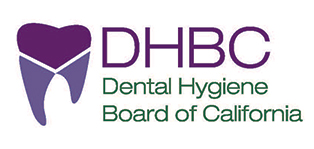How to Become a Licensed Dental Auxiliary in California, Registered Dental Hygienist in Alternative Practice (RDHAP), Application Instructions
IMPORTANT INFORMATION FOR RDHAP’s.
Registered Dental Hygienists in Alternative Practice (RDHAP's) are permitted to incorporate as "professional corporations," pursuant to Sections 13401 and 13401.5 of the Corporations Code.
If you have questions regarding this please contact the board at (916) 263-1978.
Application Instructions
Effective January 1, 1998, a new category of licensure was established by law which DHBC examines and licenses: Registered Dental Hygienist in Alternative Practice (RDHAP).
This page contains information about RDHAPs with regard to Qualification and Examination for Licensure and Allowable Duties/Frequently Asked Questions.
Prohibited conduct information and license renewal and maintenance are available on our web site.
Generally, applicants for RDHAP licensure are required to hold a current RDH license, have been engaged in clinical practice as a dental hygienist for a minimum of 2,000 hours during the immediately preceding 36 months (which can be in California or another state), possess a bachelor's degree or its equivalent, complete 150 hours of an approved educational program, and pass a written examination prescribed by the Dental Board.
On August 9, 2002, the Dental Board approved the first RDHAP educational program provided by West Los Angeles College. For more information, contact WLA at allied health@wlac.edu (310) 287-4464.
In February 2004, the Dental Board approved an online RDHAP educational program provided by the Pacific Center for Special Care at the University of the Pacific Arthur A. Dugoni School of Dentistry. This is primarily a distance education program, with only two in-person meetings required. For more information, go to http://dental.pacific.edu/.
On May 29, 2020, the Dental Hygiene Board approved the third RDHAP educational program provided by California Northstate University (CNU) in Elk Grove, CA. For more information, please contact CNU at http://dentalmedicine.cnsu.edu/registered-dental-hygienist-in-alternative-practice-rdhap/
Summary of Scope of Practice
As per Business and Professions Code section 1931(a)(2), if the dental hygienist in alternative practice provides services to a patient 18 months or more after the first date that he or she provides services to a patient, he or she shall obtain written verification that the patient has been examined by a dentist or physician and surgeon licensed to practice in this state. The verification shall include a prescription for dental hygiene services as described in subdivision (b).
(b) A registered dental hygienist in alternative practice may provide dental hygiene services for a patient who presents to the registered dental hygienist in alternative practice a written prescription for dental hygiene services issued by a dentist or physician and surgeon licensed to practice in this state. The prescription shall be valid for a time period based on the dentist's or physician and surgeon's professional judgment, but not to exceed two years from the date it was issued.
Existing Practitioners Under the HMPP
Persons who completed the required coursework under the HMPP (Health Manpower Pilot Project) and established an independent practice by June 30, 1997, do not need to comply with the above requirements. They may apply for a license by obtaining an application from DHBC. Applicants must provide proof of having established a practice by June 30, 1997, complete the application, and pay a $50 application fee and a $51 fingerprint fee. A license will be issued once the person's criminal history background investigation has been completed.
Allowable Duties/Frequently Asked Questions
Law and regulation specifically define the duties that each category of auxiliary is allowed to perform, the level of dentist supervision required, and the settings in which the duties may be performed. It is a criminal offense to perform illegal functions, as well as grounds for license discipline of both the person performing the illegal function and any person who aid or abets such illegal activity.
The duties that RDHAPs are allowed to perform are specified in Sections 1925 of the Business and Professions Code.
Those sections are contained in DHBC's publication of laws and regulations that can be viewed or printed.


